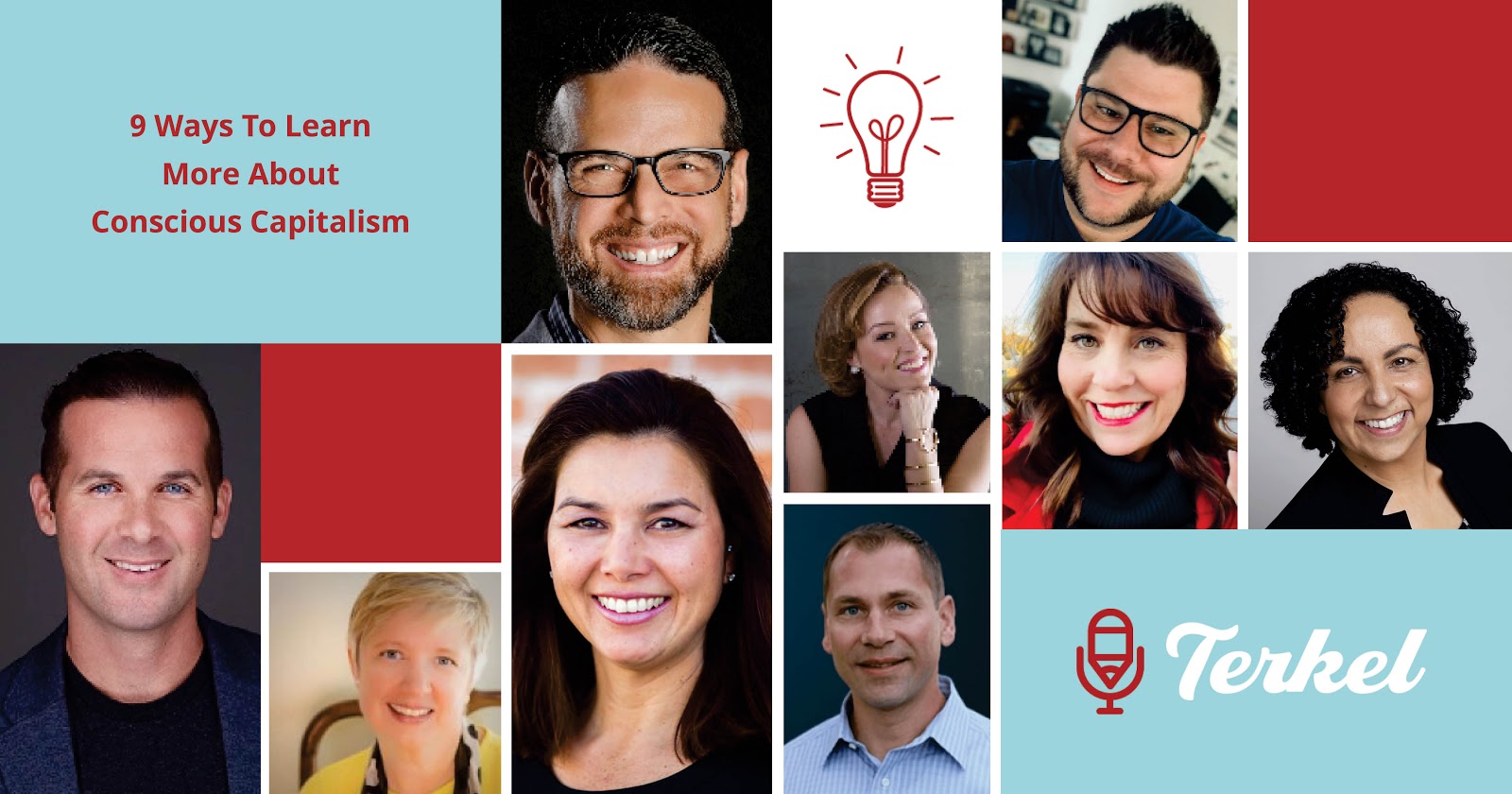What’s the best way to learn about Conscious Capitalism?
To help you learn more about Conscious Capitalism, we asked business professionals and HR experts this question. From interviewing conscious capitalists to integrating its ideals, there are several ways that may give you insight into Conscious Capitalism.
Here are nine ways to learn about Conscious Capitalism:
- Check Out Your Local Chapter
- Interview Conscious Capitalists
- Start with Reading
- Witness it in Action
- Incorporate the Four Core Principles into Your Recruiting
- Get Involved
- Simon Sinek
- Engage Experts as Potential Mentors
- Consider How You Will Integrate Its Ideals
Check Out Your Local Chapter
There are a number of ways to learn about Conscious Capitalism. If diving into a book is your thing, I’d start with two books; Conscious Capitalism, Liberating the Heroic Spirit of Business, and ‘Firms of Endearment, How World-Class Companies Profit for Passion and Purpose. If you’d rather tune into a video, I’d recommend Raj Sisodia’s presentation from the 2018 Conscious Capitalism CEO Summit.
If neither of the above appeals to your style of learning, you can check out your local chapter of Conscious Capitalism and investigate their offerings. In short, Conscious Capitalism is rooted in a set of ideals and a mindset that business can be and should be, a powerful force for good. We spend upwards of 70% of our adult lives at work – let’s make sure that time is spent purposefully.
Brian Mohr, anthym
Interview Conscious Capitalists
I learn about anything by conducting informational interviews with people who are experts about the topic. With Conscious Capitalism, I’ve sought out business leaders in Phoenix like Brian Mohr and Matt Altman to learn more about how they have structured their companies around the idea of Conscious Capitalism. By learning first from the experts, I’m able to better understand concepts and think about how they may apply to our business. I’d highly recommend an informational interview for anyone looking to learn about Conscious Capitalism, and the member directory is a great place to start.
Brett Farmiloe, Markitors
Start with Reading
There are a number of great books about Conscious Capitalism, as well as active business communities all over the world. There are a growing number of Conscious Capitalism-trained consultants across the globe. These are just a few books that I recommend: Firms of Endearment by Raj Sisodia (case studies and some research), Wired to Care by Dev Patnaik (about the power of empathy), Leading Well from Within by Daniel Friedland (principles of conscious leadership).
Becky Papp, Colman Group
Witness it in Action
I believe seeing Conscious Capitalism in action is one of the most impactful ways to learn about it. Talk to the leaders of other organizations who are practicing Conscious Capitalism, attend webinars, listen to podcasts –– anytime you can hear the stories from inside these companies it helps to put the pieces of the puzzle together and understand how pervasive an impact it can have.
Chris Lekander, Wilco Source
Incorporate the Four Core Principles into Your Recruiting
The best way to learn about Conscious Capitalism is to incorporate the four core principles into a recruitment process. By structuring an interview process around guiding principles like “higher purpose” or “conscious culture,” an organization can dive deeper into how Conscious Capitalism applies to its business practices. In addition, by identifying interview questions around guiding principles, organizations can attract the candidates whose higher purpose aligns with the purpose of the organization.
Jon Schneider, Recruiterie
Get Involved
I have found that getting directly involved in organizations that are rooted in Conscious Capitalism principles has been the most engaging and informative way to learn about this philosophy. For example, my involvement with the Conscious Capitalism AZ Chapter has not only helped deepen my understanding of this philosophy but also helped me tailor it to fit our company’s purpose-built culture and values. Furthermore, it has introduced me to a number of companies within my community that practice Conscious Capitalism. These connections have provided me with a community of individuals who have expertly woven conscious business practices into their companies’ framework and culture. As such, I’ve been able to learn from them to develop and adapt my approach to conscious leadership over the years, which has helped propel WebPT’s higher purpose forward and create a lasting impact for all of our stakeholders.
Heidi Jannenga, WebPT
Simon Sinek
The best way to learn about conscious capitalism is to learn more about those who advocate for it. Simon Sinek is an excellent resource for learning more about the current state of business and how we got here. Start With Why and Leaders Eat Last are two excellent reads regarding why conscious capitalism is the key to the long-term sustainability of our economy and those who participate in it.
Steven Brown, DP Electric Inc
Engage Experts as Potential Mentors
There are many resources for learning about Conscious Capitalism. I recommend learning by connecting with those who are already entrenched in this philosophy of doing business for the good of society. The conscious capitalism website has a plentiful list of local chapters. Each chapter provides a chance to connect with conscious business leaders in your city. From here I recommend taking time to sync directly with businesses that have made strides in ensuring their business operations are ethical, sustainable, and purpose-driven. Consider what initial considerations you have in how your business can do business consciously and select professionals to sync with who embody the type of program you wish to share. Look to engage experts as potential mentors who can provide guidance and serve to shepherd your efforts and learnings forward.
Tyler Butler, 11Eleven Consulting
Consider How You Will Integrate Its Ideals
Conscious capitalism is a concept that can be learned through books, peers, business groups, academic studies, and continuing education. It is an idea that endeavors to consider all shareholder’s best interests at every stop along the business value chain. Conscious capitalism goes hand-in-hand with conscious consumerism and often is combined with a business model that considers a triple bottom line. Many B corporations commit themselves to the values and principles of conscious capitalism. Ultimately, pursuing a business venture with genuine dedication and passion for ethical entrepreneurship from profiting beneficiaries to economic impacts and employee satisfaction to environmental stewardship; these are ideals that align with conscious capitalism.
Jena Ritchie Land, Leader in Empowering Ethical Entrepreneurship





